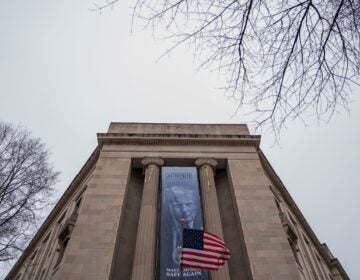Breaking up with the School Reform Commission will be hard to do
ListenThose whom the gods would destroy, they first grant their wishes.
Two out of three Philadelphians want to see an end to the School Reform Commission, and to direct state involvement in running the city school system.
That finding comes from a survey of 554 city residents commissioned by the Philadelphia Federation of Teachers (AKA the teachers union, so take the results with whatever ration of salt you think wise).
Still, those results track pretty well with what I’ve heard from city residents in community forums and conversations over the last decade.
Philadelphians deeply resent the peculiar intrusion on their city’s “sovereignty” that the School Reform Commission, controlled by state appointees, represents.
Many seem to think the woes that ail the school system — the chronic money shortfalls, layoffs, charter scandals, school closings — would go away, if we could only get rid of the malignant Pennsyltuckey influence on the SRC.
But they would not. In fact, they might get worse.
Here’s a simple, powerful, fact. State aid represents roughly half of the school district’s revenues. Sure, that figure should be higher.
But half is still half. You can’t simply tell a partner who’s picking up that much of the freight to butt out, to take a hike.
Or you can’t, at least, if you hope to get that partner to up its contribution.
Some problems of Philly schools are endemic to urban education. Some have to do with this city’s particularly strong aversion to innovative change. But most have to do with a state government with its own aversion to funding education properly – particularly in recent years.
Moving political deck chairs around would cure none of that.
Besides, how, exactly, would the deck chairs look after you scrapped the SRC? Bizarre fact: Philly, unlike the rest of the state, has never had an elected school board. Its school governance has always been weird and messy. Under the previous system, with unpaid school directors appointed by the mayor and subject to endless second guessing by City Council, everyone had a piece of the game but no one was really accountable.
Moreover, chances are at least 50/50 this fall that the incumbent governor, who is no friend of city schools, will live up to his underground nickname, One-Term Tom. Next year, the governor might well be a Democrat far friendlier to the city’s needs.
As Ed Rendell showed, such a governor who feels like he has real skin in the game with city schools can be a plus for schoolchildren. If I were a Philly parent or teacher, I wouldn’t be so eager to give up that possibility.
WHYY is your source for fact-based, in-depth journalism and information. As a nonprofit organization, we rely on financial support from readers like you. Please give today.




